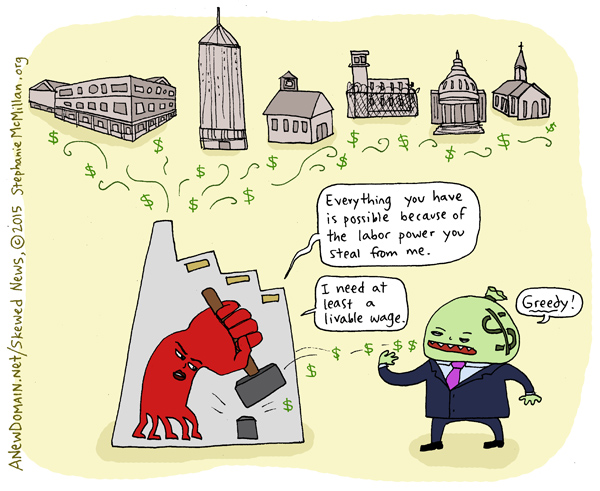I’ve been in a major transition period, going through some significant changes in my life during the past year or so.
First, a wonderful person came into my life, and we fell in love. Chris is my soul mate.
Second, Workers Power became the main political initiative I’m involved with. It’s not perfect or big, and has many ups and downs, but I fit there, and believe the world is better with it than without it.
Third, I’ve been reflecting a lot on my life and work, confronting and trying to overcome habits like co-dependency, people-pleasing, dogmatism and arrogance. I’ve always had a hard time being openly myself (insofar as that’s possible in this social context), as opposed to what I’ve been convinced to believe I “should” be. I regret the damage that’s done to myself and others…but I’m learning and evolving.
Fourth, I’ve stopped drawing editorial cartoons and commissioned illustrations for a living. I didn’t want to keep working on others’ projects while neglecting my own, and too many clients demanded more compromises of message than I was willing to concede.
Fifth, my friend Eric generously left me a gift when he died, of enough money to open an art studio. While Chris still works as a truck driver, he’s also involved in the studio with me. We hold classes and events, while practicing and improving our artistic skills, and we’re working hard to make it grow enough to support us.
Finally, I have many projects and plans in mind and in progress, both political and not directly so. Among them: to pull together a lot of scattered work I’ve already done and make it easily available.

 New!
New!











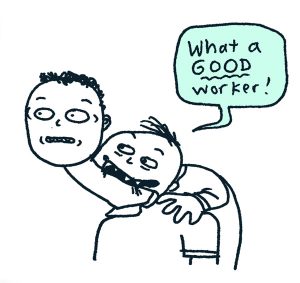


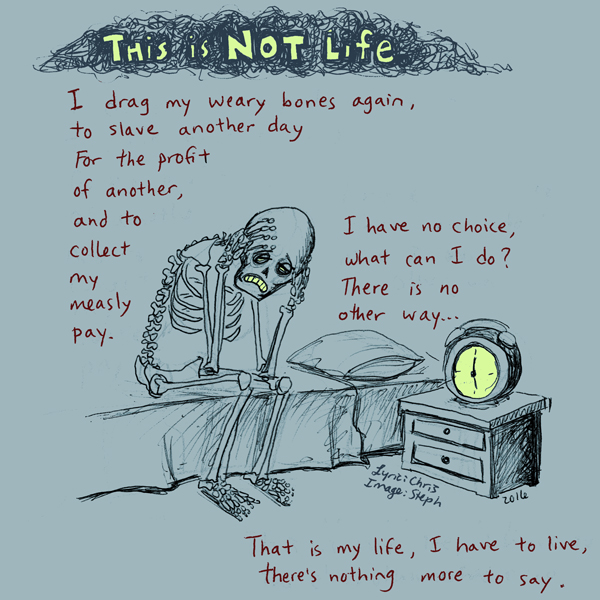



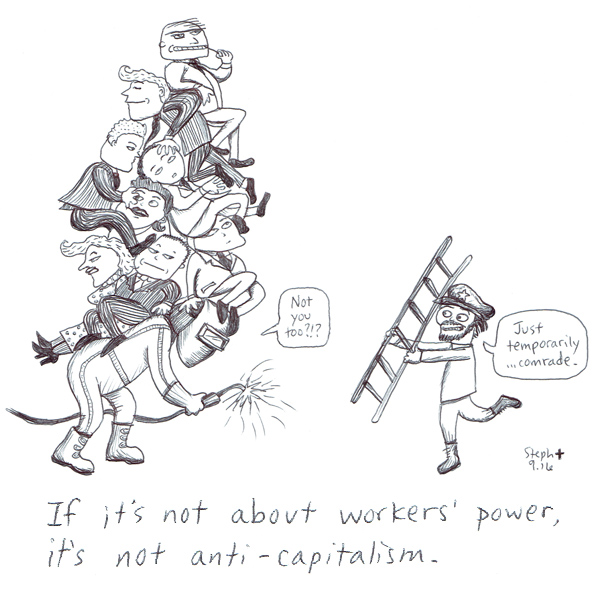 9/20/16
9/20/16
 Capitalism, even in deep crisis, will never cease struggling to adapt and grow. It will not collapse or dismantle itself, until it destroys the planet and everyone on it. So it falls on us to destroy it. In destroying capitalism, we construct something new. Revolution is the total transformation of the way everything is produced, the social relations of domination that go along with it, and the ways of thinking that keep us trapped.
Capitalism, even in deep crisis, will never cease struggling to adapt and grow. It will not collapse or dismantle itself, until it destroys the planet and everyone on it. So it falls on us to destroy it. In destroying capitalism, we construct something new. Revolution is the total transformation of the way everything is produced, the social relations of domination that go along with it, and the ways of thinking that keep us trapped.

 MOST BOOKS ON ecosocialism, while they may be of interest to those who already know something about socialism, especially those who already are socialists, are not particularly useful for those who want to be aware of both what climate change is and what capitalism is.
MOST BOOKS ON ecosocialism, while they may be of interest to those who already know something about socialism, especially those who already are socialists, are not particularly useful for those who want to be aware of both what climate change is and what capitalism is.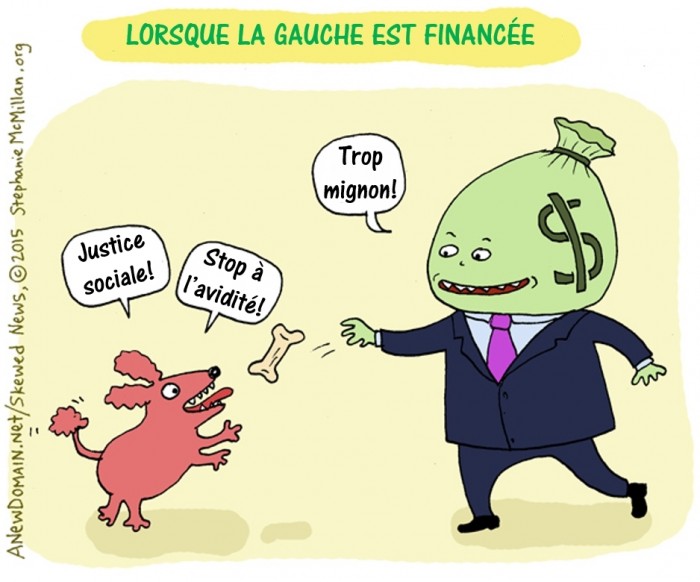 Il y a une vingtaine d’années, lors d’une conversation avec un organisateur bangladais, nous avons abordé le sujet des ONG*. Il a craché avec dégoût : « Je déteste les ONG». À l’époque, je n’ai pas vraiment compris pourquoi il était si véhément sur le sujet. Je savais que les ONG avaient des aspects négatifs, comme le fait qu’elles détournent une partie de l’énergie révolutionnaire des masses, mais je croyais encore à moitié leurs affirmations selon lesquelles leur travail était plus utile que nuisible. Ne fallait-il pas être une espèce de crétin dogmatique pour dénoncer les soins gratuit et les programmes de lutte contre la pauvreté ? Je ne comprenais pas encore à quel point elles sont en réalité une catastrophe.
Il y a une vingtaine d’années, lors d’une conversation avec un organisateur bangladais, nous avons abordé le sujet des ONG*. Il a craché avec dégoût : « Je déteste les ONG». À l’époque, je n’ai pas vraiment compris pourquoi il était si véhément sur le sujet. Je savais que les ONG avaient des aspects négatifs, comme le fait qu’elles détournent une partie de l’énergie révolutionnaire des masses, mais je croyais encore à moitié leurs affirmations selon lesquelles leur travail était plus utile que nuisible. Ne fallait-il pas être une espèce de crétin dogmatique pour dénoncer les soins gratuit et les programmes de lutte contre la pauvreté ? Je ne comprenais pas encore à quel point elles sont en réalité une catastrophe.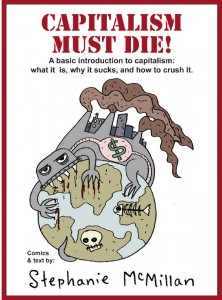 Why it’s great: Spoiler alert: capitalism is terrible. How do we know? Because author Stephanie McMillian’s colourful cartoons definitely told us so! Her playful blend of colours and style is inviting and brings us in to the serious message that capitalism is definitely destroying the world.
Why it’s great: Spoiler alert: capitalism is terrible. How do we know? Because author Stephanie McMillian’s colourful cartoons definitely told us so! Her playful blend of colours and style is inviting and brings us in to the serious message that capitalism is definitely destroying the world.




